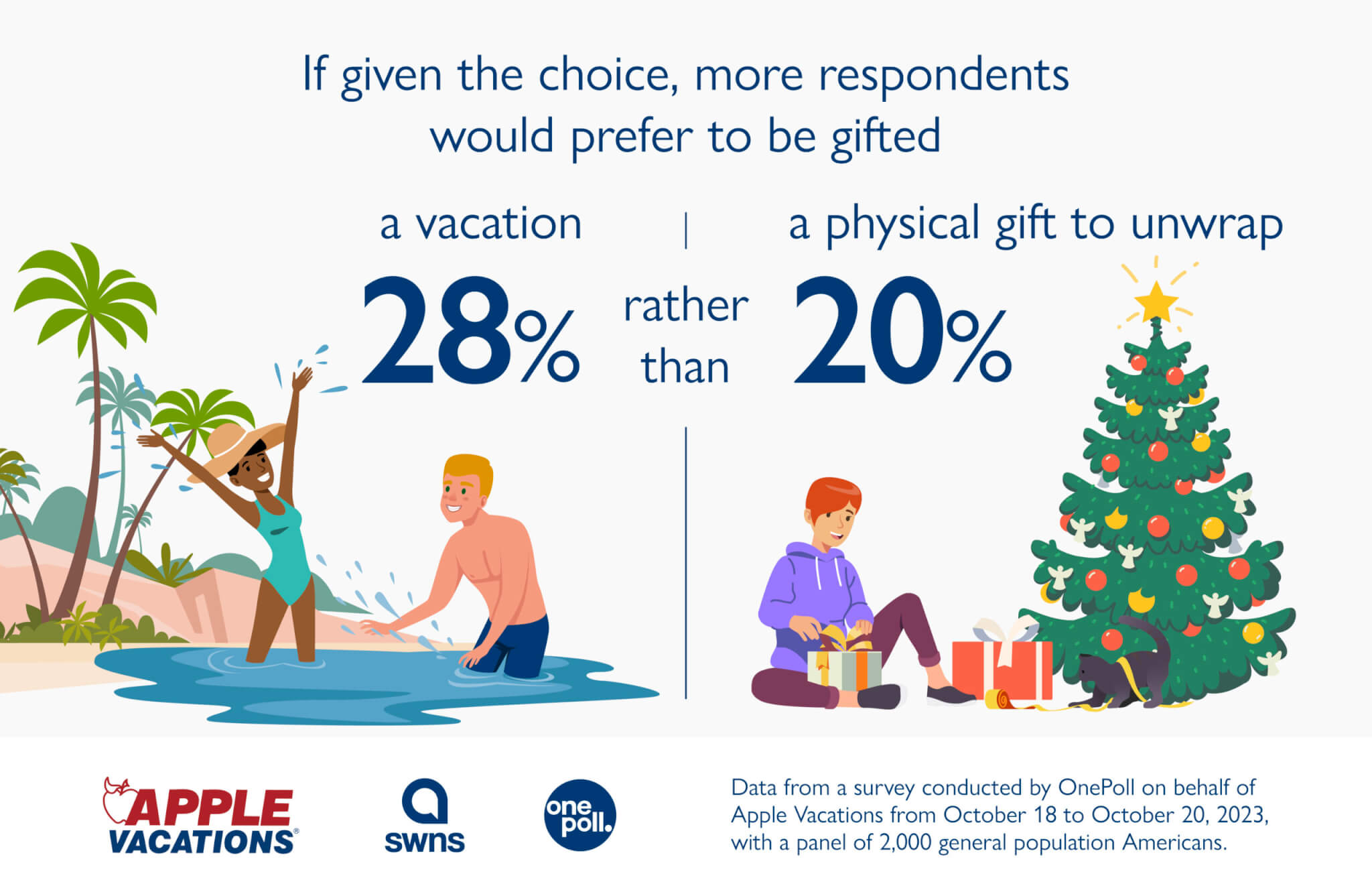NEW YORK — More than two in five Americans would consider a solo vacation instead of celebrating the holidays this season (45%), according to new research. The survey of 2,000 American adults examined travel plans this holiday season and found that 63 percent will be traveling this year — up from 41 percent last year — with their kids (72%), partner (66%), or other family members (52%).
This year, more of those who are traveling for the holidays are interested in exploring the holidays in a new way (52%, up from 29% last year). However, more than three-quarters (77%) of respondents admit that by the time the holidays roll around, they’re going to need a vacation. For 27 percent, “vacation” does not include traveling to be with family.
Respondents feel like they’ll need a break from work (53%), their partner (49%), and even their kids (46%) once the holidays do start. This may be why the average respondent ideally caps their holiday vacation at six days.
Conducted by OnePoll on behalf of Apple Vacations, the survey also found that while seven in 10 respondents are excited about their holiday plans, 16 percent feel bored.

In years past, respondents spent their holidays either at their home (31%), a family member’s home (23%), or their partner’s home (20%). This year, 58 percent of respondents don’t want to sit around at home. Instead, 16 percent are looking to go on a vacation or avoid someone’s house entirely.
However, that doesn’t come without its challenges. Last year, the top struggle people worried about when it came to holiday travel was crowds (42%), while this year they have greater concerns about lost luggage (49%). Delayed flights are also more of a concern this year (41%) than last (37%) along with overpacking (31% vs. 16% last year) and forgetting something at home (46% vs. 31% last year).
Regardless, Americans would spend an average of $1,514.26 on holiday travel.
Tropical getaways and small towns tied for the top destination Americans would be interested in visiting this holiday season (both 51%). These were followed by all-inclusive resorts (50%), family-friendly destinations (43%), and even snowy mountains (43%).
“No matter if your holidays will look the same as they have in the past or if you’re spending them exploring somewhere new, it’s important to find time to relax and reset for the new year,” says spokesperson Dana Studebaker, vice president of marketing of consumer brands at ALG Vacations, in a statement. “For some, that means a family reunion and for others it may mean a getaway to a beach with no responsibilities.”
More than half (53%) of Americans will buy themselves a gift this holiday season and are willing to spend $246.42.
Those gifts include clothes or shoes (47%), jewelry (44%), electronics (35%), and a vacation (26%). However if given the choice, respondents are slightly more likely to be happier if they were given a vacation rather than a physical gift to unwrap (28% vs 20%).
“In recent years, there’s been a shift from wanting physical gifts toward giving experiences. The survey data shows just that. Americans are hoping to get away and experience something new with their friends and family and rather than accumulate more things, they will rather create new memories,” says spokesperson Henry Perez, business development director at Bahia Principe Hotels & Resorts.
Survey methodology:
This random double-opt-in survey of 2,000 general population Americans was commissioned by Apple Vacations between October 18 and October 20, 2023. It was conducted by market research company OnePoll, whose team members are members of the Market Research Society and have corporate membership to the American Association for Public Opinion Research (AAPOR) and the European Society for Opinion and Marketing Research (ESOMAR).

